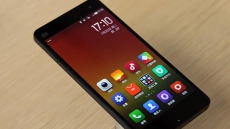Smart bulbs are expected to be a popular purchase this holiday season. But could lighting your home open up your personal information to hackers? Now a new study from an Indian-origin researcher shows that the hacker's next prime target could be that smart bulb.
Some smart bulbs connect to a home network without needing a smart home hub, centralised hardware or software device where another internet of things (IoT) products communicate with each other.
Smart home hubs, which connect either locally or to the cloud, are useful for IoT devices that use the Zigbee or Z-Wave protocols or Bluetooth, rather than Wi-Fi.
"Your smart bulb could come equipped with infrared capabilities, and most users don't know that the invisible wave spectrum can be controlled. You can misuse those lights," said study lead author Murtuza Jadliwala, Professor from the University of Texas at San Antonio in the US.
"Any data can be stolen: texts or images. Anything that is stored in a computer," Jadliwala added.
Earlier this year Amazon's Echo made global headlines when it was reported that consumers' conversations were recorded and heard by thousands of employees.
Now researchers have conducted a review of the security holes that exist in popular smart-light brands.
According to the analysis, the next prime target could be the smart bulb that shoppers buy this coming holiday season.
If these same bulbs are also infrared-enabled, hackers can send commands via the infrared invisible light emanated from the bulbs to either steal data or spoof other connected IoT devices on the home network, the study said.
The owner might not know about the hack because the hacking commands are communicated within the owner's home Wi-Fi network, without using the internet.
Smart bulbs have moved beyond novelty to a lucrative mature market. Last year consumers spent close to $8 billion, and that amount is expected to more than triple to $28 billion in less than a decade.
"These bulbs are now poised to become a much more attractive target for exploitation even though they have very simple chips," Jadliwala said.
Jadliwala recommends that consumers opt for bulbs that come with a smart home hub rather than those that connect directly to other devices.





